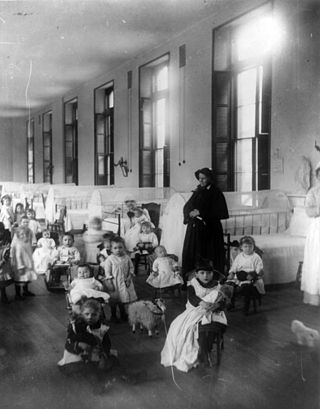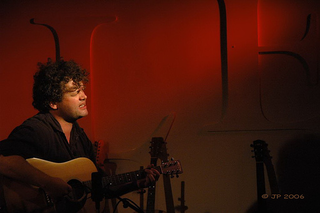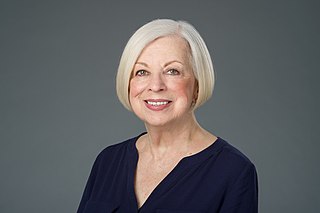Related Research Articles

Adoption is a process whereby a person assumes the parenting of another, usually a child, from that person's biological or legal parent or parents. Legal adoptions permanently transfer all rights and responsibilities, along with filiation, from the biological parents to the adoptive parents.
The international adoption of South Korean children was started after 1953 because a large number of mixed children became orphaned during the Korean War, but later, the children who were adopted in accordance with the international adoption program included orphaned Korean children. Religious organizations in the United States, Australia, and many Western European nations slowly developed the apparatus that sustained international adoption as a socially integrated system. However, this system is essentially gone as of 2020. The number of children who were given up for adoption is lower than it is in OECD countries which are similar in size, the majority of adoptees are adopted by South Korean families, and the number of international adoptees is at a historical low.

Peter Koelewijn is a founding father of Dutch-language rock and roll. Koelewijn is also a successful producer and songwriter for other Dutch artists. His most famous song is "Kom van dat dak af".
Holt International Children's Services (HICS) is a faith-based humanitarian organization and adoption agency based in Eugene, Oregon, United States, known for international adoption and child welfare. The nonprofit works in thirteen countries, including: Cambodia, China, Colombia, Ethiopia, Haiti, India, Mongolia, Philippines, South Korea, Thailand, Uganda, Vietnam, and the United States. This work includes a range of services for children and families including efforts in nutrition, education, family strengthening, orphan care, foster care, family reunification, and child sponsorship. The organization's stated mission is to seek a world where every child has a loving and secure home.

A family reunion is an occasion when many members of an extended family congregate. Sometimes reunions are held regularly, for example on the same date of every year.
International adoption is a type of adoption in which an individual or couple residing in one country becomes the legal and permanent parent(s) of a child who is a national of another country. In general, prospective adoptive parents must meet the legal adoption requirements of their country of residence and those of the country whose nationality the child holds.
In the United States, adoption is the process of creating a legal parent–child relationship between a child and a parent who was not automatically recognized as the child's parent at birth.
Interracial adoption refers to the act of placing a child of one racial or ethnic group with adoptive parents of another racial or ethnic group.

Ernst Gideon Jansz is one of the founding members and frontmen of Doe Maar. Doe Maar is a Dutch 1980s ska/reggae band, and is considered one of the most successful bands in Dutch pop history.

Kim-Lian van der Meij is a Dutch musical actress, presenter and a singer-songwriter.

Kinderen voor Kinderen is a Dutch children's choir maintained by public broadcaster BNNVARA.
Child laundering is a tactic used in illegal or fraudulent international adoptions. It may involve child trafficking and child acquisition through payment, deceit or force. The children may then be held in sham orphanages while formal adoption processes are used to send them to adoptive parents in another country.
Koreans in the Netherlands form one of the smaller Korean diaspora groups in Europe. As of 2022, 9,469 people of Korean origin lived in the Netherlands.
Jane Jeong Trenka is a Korean American activist and an award-winning writer. She is the president of the organization TRACK.

Skik is a Dutch pop group, originating from the town of Erica, Drenthe. The band mainly sings in Drèents, a variation of Low-Saxon, which is traditionally spoken in Drenthe. Skik is Drèents for fun or enjoyment.

kimura byol lemoine is a Korean-born, Belgium-raised activist, feminist and artist.
There have been several high-profile cases of deportation of Korean adoptees from the United States. Prior to the passage of the Child Citizenship Act of 2000, the adoptive parents of adoptees had to file for their child to naturalize before the age of 16. Many parents were unaware of this requirement, assuming that their adopted children automatically derived citizenship from them, and therefore did not apply. The Child Citizenship Act sought to remedy this issue by extending citizenship to all international adoptees who were under 18 at the time that the bill was passed, but did not apply retroactively. This left those adopted by American families prior to 1983 vulnerable to deportations.
Adoption in South Korea, specifically the low rates of domestic adoption in their history, has been a point of discussion for the country, causing new policies to be passed over the years. South Korea, at the conclusion of the Korean War in 1953, began to partake in transnational adoption. As these overseas adoptions increased over the next couple of decades, South Korea pushed to encourage fewer transnational adoptions and more domestic adoptions. The high number of children put up for adoption each year in South Korea can be attributed to a variety of factors: the lack of support for unwed mothers, as well as social stigma, contributed greatly to these numbers. Several organizations have been created to support unwed mothers and combat stigma. There has been changes to adoption policies throughout the decades as well. The Special Adoption Act was passed in 2011 with the intention of boosting domestic adoptions. However, the unexpected outcome of more abandoned children ensued following the amendment taking effect.

Bernice Gottlieb is an early leader in the trans-racial adoption movement in the United States. In later years, she led a residential real estate firm and authored several books, including one on adoption.
References
- ↑ Kleijwegt, A (2006-09-20). "'Doe mij maar zo'n Koreaantje!'". Andere Tijden. NTR. Retrieved 9 June 2024.
- ↑ Flikweert, Bastiaan S.V. (2022). ‘DOE MIJ MAAR ZO’N KOREAANTJE’ A Historical Analysis of the Establishment of Korean Transnational Adoption to the Netherlands, 1967-1969 (Thesis). Leiden University. p. 5. Retrieved 9 June 2024.
- ↑ "Home". ikaa.org.